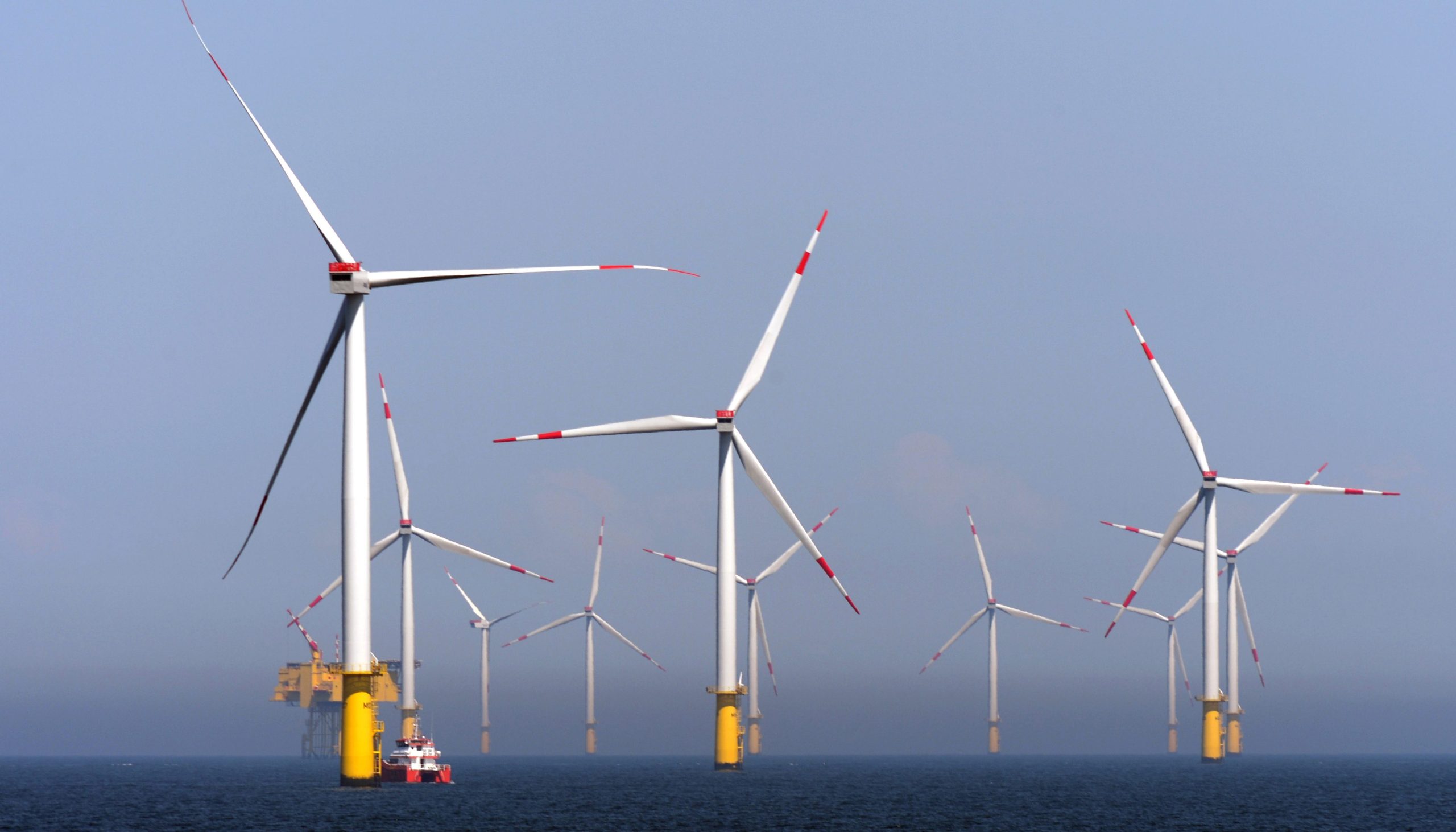Bremerhaven, 7 December 2021 – The expansion of onshore and offshore wind energy can create more jobs in the wind industry in North Rhine-Westphalia than would be reduced by a faster coal phase-out. This is the result of a recent study by the market research institute wind:research, which was supported by WAB as part of its Inn2POWER German Inland Campaign. The study also shows how the offshore wind expansion planned by the new federal government will also create value and employment far from the coast.
cording to the study, many wind energy jobs in North Rhine-Westphalia significantly depend on the political framework conditions such as expansion targets for onshore and offshore wind, distance regulations and forest use for wind energy. Recently, the expansion of wind energy in Germany’s most populous state has hardly progressed at all. In the German North and Baltic Seas, expansion has been at a standstill for almost two years due to political decisions.
Offshore wind energy production plays an important role for value creation in North Rhine-Westphalia, as does offshore wind energy production. The authors of the study have created four scenarios along different expansion targets:
The “climate protection” scenario is based on the EU Commission’s offshore strategy, which aims for 300 GW of offshore wind energy in the EU. Accordingly, a total capacity of 50 GW of offshore wind energy should be achieved in Germany by 2040. The new “traffic light” coalition has pledged to exceed this target with its goals of “40 GW by 2035” and “70 GW by 2045”, which are laid down in the coalition agreement.
If these expansion targets are achieved, the current 20,000 full-time equivalents could increase by up to 2,650 full-time equivalents or 13 percent by 2040. The turnover of the market participants could grow from 7.2 to 8.1 billion euros.
In Baden-Württemberg, a strong expansion of wind energy could even bring up to 5,000 new full-time jobs by 2035 and increase the turnover of market participants by up to 28 percent. This was shown by a wind:research study on value creation in Germany’s southwest last year, also supported by WAB.
Previously, a Germany-wide wind:research value creation study co-supported by WAB had shown how strongly employment from offshore wind energy is distributed across the federal states. One result: although just under half of the offshore wind jobs are in the five northern states along the coasts. But every third employee in offshore wind energy also works in the inland states of Baden-Württemberg, Bavaria, or Hesse.
“With our German Inland Campaign, supported by the EU Inn2POWER project, we have been pointing out since 2019 that companies need a strong and, above all, stable domestic market in the long term to tap into their export potential and create more jobs in Germany. After the ongoing offshore wind expansion gap, the new expansion plans of the incoming federal government can lead to a significant new dynamic in the wind energy labour market, especially for training and further education,” said WAB e.V. Managing Director Heike Winkler.
“The value-added and employment potential that offshore wind energy offers not only for the coastal states but also for federal states far from the coast, such as North Rhine-Westphalia or Baden-Württemberg, can be raised if sufficient skilled workers are available,” Winkler adds. “Therefore, the expansion plans are also a signal to climate-conscious young people to take up wind energy study courses again and to use training and further education opportunities to advance offshore wind expansion in the home market and internationally.”
Germany’s coastal states can benefit significantly from the long-term expansion of offshore wind energy. By their very nature, value creation is concentrated there in the areas of transport and assembly as well as maintenance and repair, among others. “If you want to benefit from this as a location, you have to provide the appropriate infrastructure for handling large components,” said the WAB managing director.



























